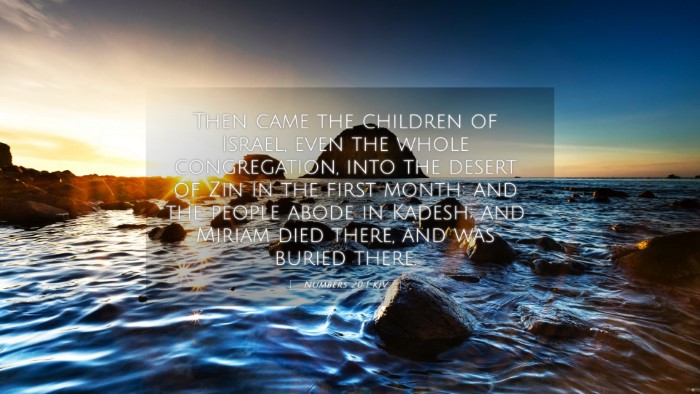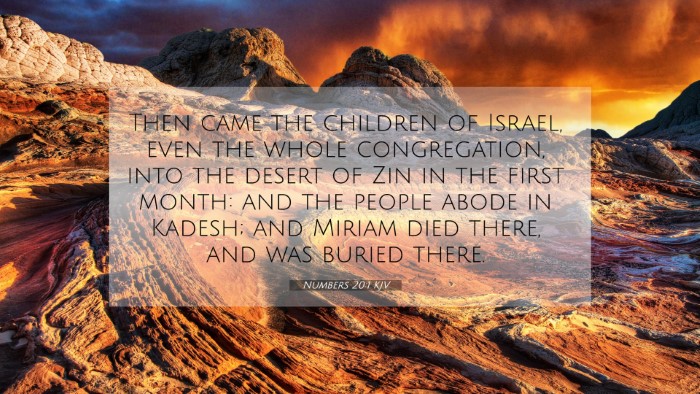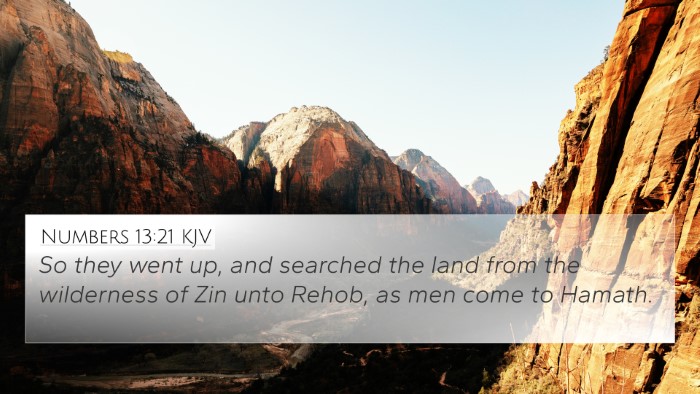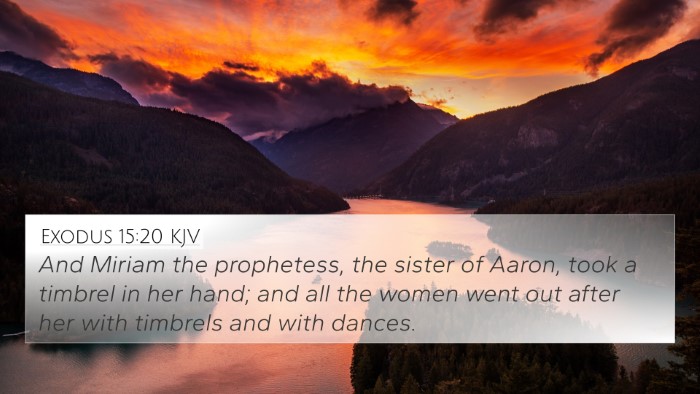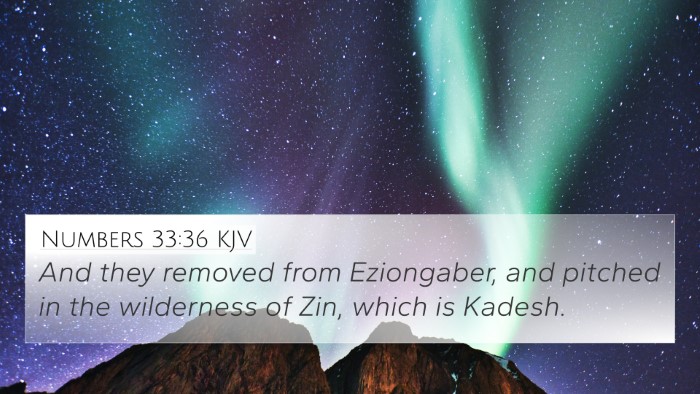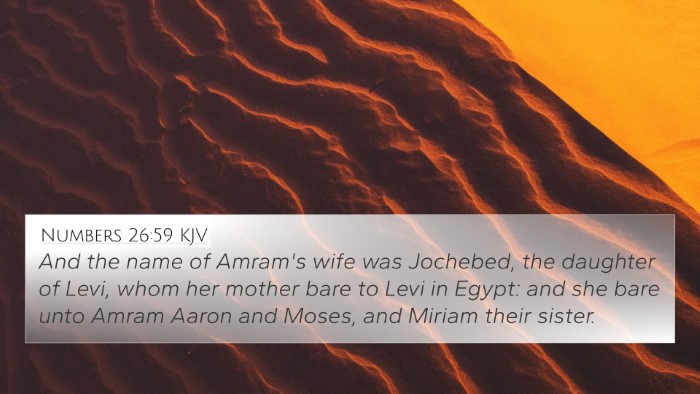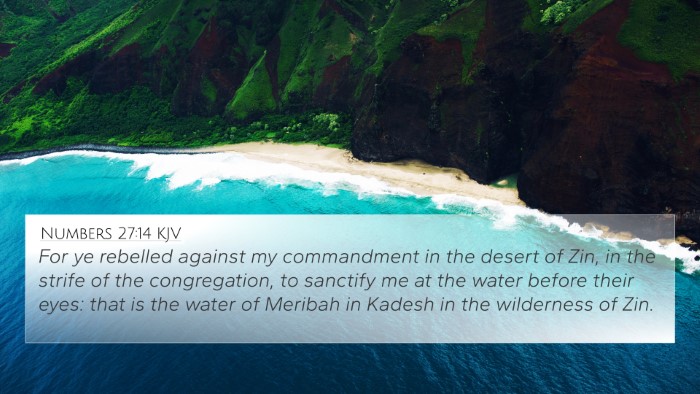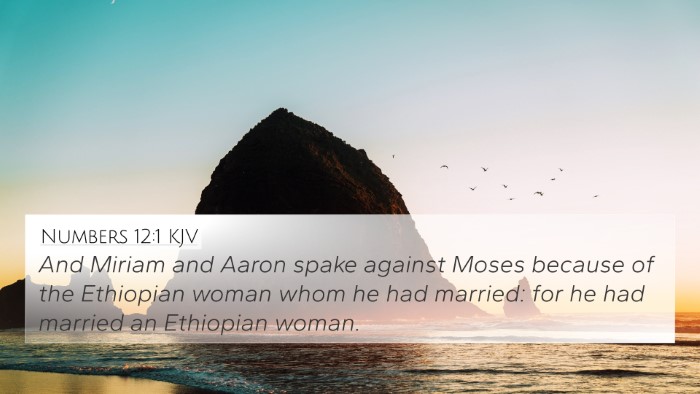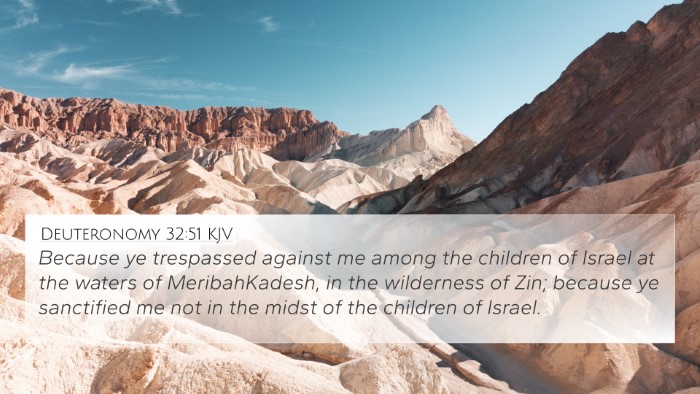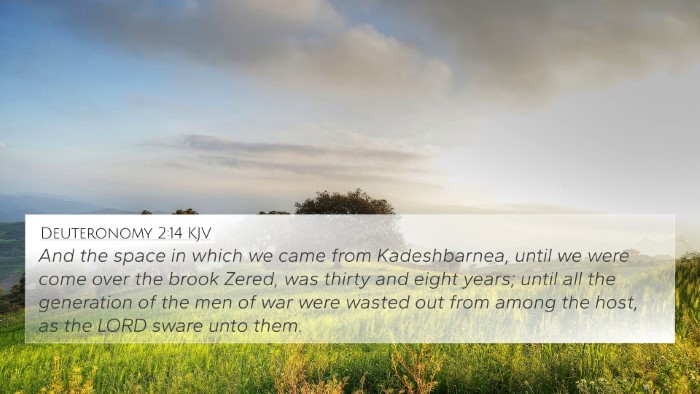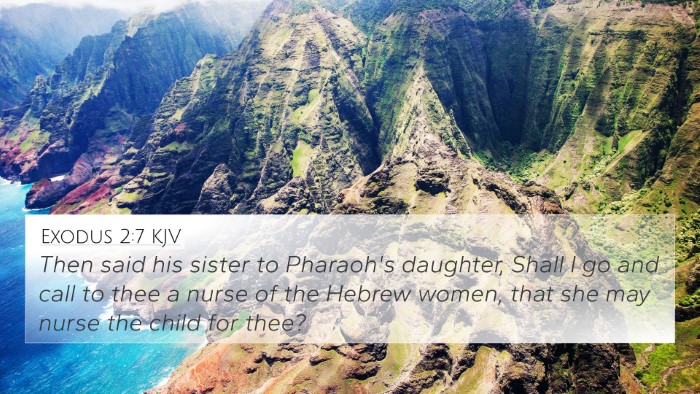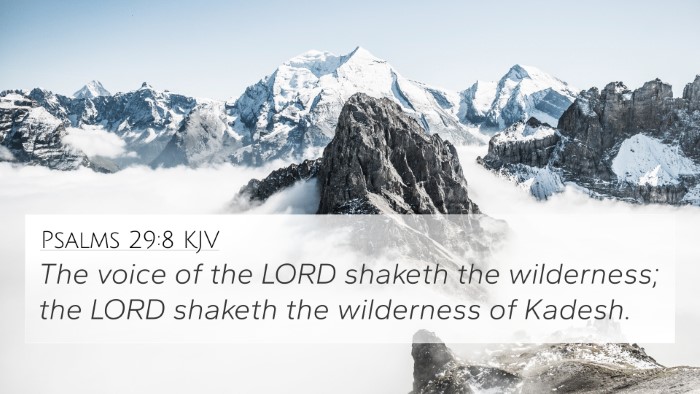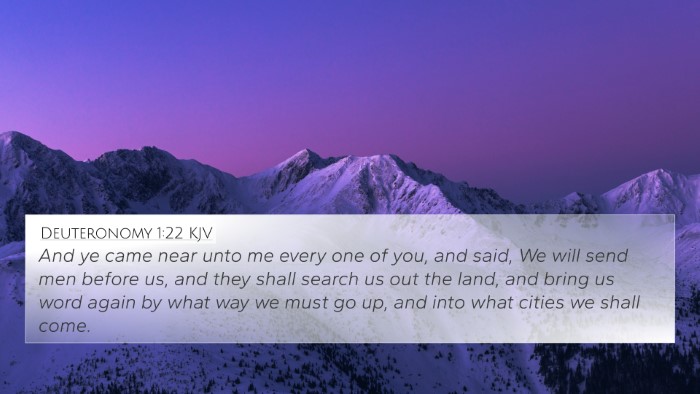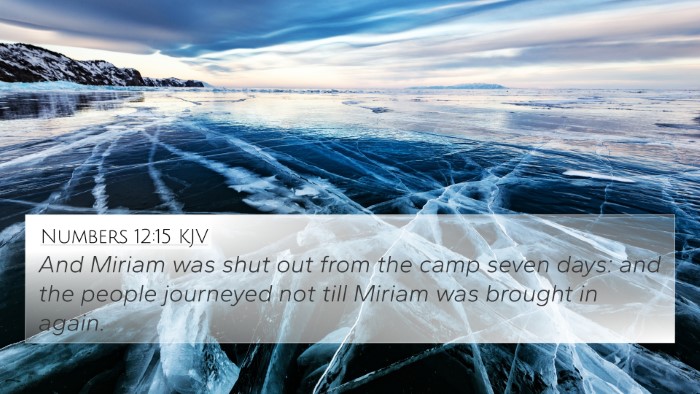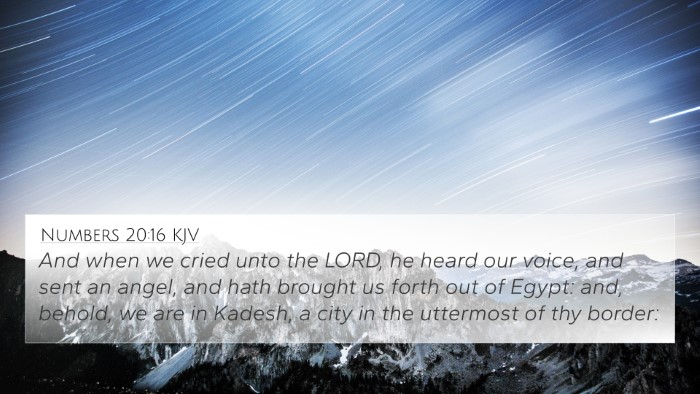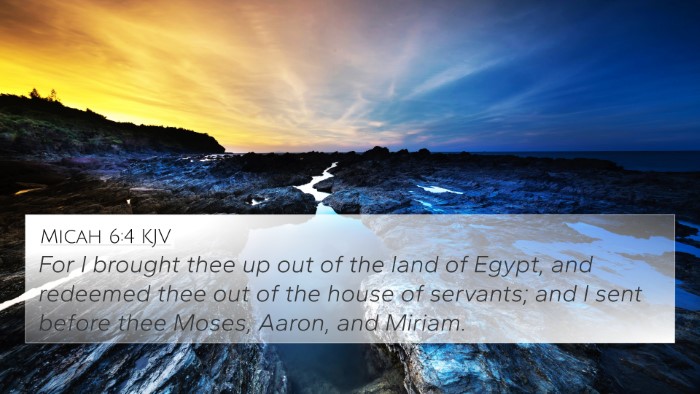Bible Verse: Numbers 20:1 - "Then came the children of Israel, even the whole congregation, into the desert of Zin in the first month: and the people abode in Kadesh; and Miriam died there, and was buried there."
Meaning and Interpretation
The verse from Numbers 20:1 marks a significant moment in the narrative of Israel's journey through the wilderness. The death of Miriam, the sister of Moses and Aaron, carries deep emotional and spiritual implications for the Israelites.
Contextual Background
This event takes place during the Israelites' wanderings in the Desert of Zin. The first month mentioned here refers to the month of Abib (or Nisan), which later signals the beginning of the Israelite calendar and is tied to themes of renewal and new beginnings.
Miriam's Significance
Miriam's role as a prophetess and leader among the women of Israel is highlighted in earlier texts, particularly in Exodus 15:20-21, where she leads the women in song after the crossing of the Red Sea. Her death signifies not only a personal loss for Moses and Aaron, but also a pivotal moment in the life of the community.
Commentary Insights
- Matthew Henry: He highlights that the deaths of prominent figures like Miriam serve as a reminder of human frailty and the inevitability of mortality, even among those chosen for God's purposes.
- Albert Barnes: Barnes notes that Miriam’s death is important in the timeline of the Exodus journey, emphasizing the sorrow felt by the people in Kadesh as they mourn their leader.
- Adam Clarke: Clarke connects this event to the broader narrative of disobedience and guidance by reflecting on how the loss of godly leaders impacts community morale and faith.
Thematic Connections
This passage can be linked thematically to several other scripture verses that explore themes of leadership, loss, and community mourning:
- Exodus 15:20-21: The celebration of Miriam as a leader after the Red Sea crossing.
- Numbers 14:1-4: The people's outcry and desire to return to Egypt highlights ongoing struggles and the human inclination towards despair.
- Deuteronomy 34:5-6: The death of Moses also serves as a poignant reflection on the end of an era, connecting the deaths of key leaders.
- Psalms 90:10: A meditation on the brevity of life which echoes the sentiment of loss felt in Numbers 20:1.
- 1 Thessalonians 4:13: Offers comfort in grief through the hope of resurrection, which parallels the mourning of Miriam.
Cross-Referencing for Deeper Understanding
For those looking to explore the connections and themes further, the following cross-references enrich one’s understanding:
- Numbers 12:1-15 - Concerning Miriam's earlier challenges to Moses' authority.
- John 11:35 - “Jesus wept” reflects God’s compassion in times of mourning.
- Hebrews 11:23-29 - Discusses the faith of Moses and the Israelites, relating to their obedience amidst loss.
- Romans 5:3-5 - Highlights the growth through suffering, relevant to the Israelites' journey and experiences of loss.
- Isaiah 40:31 - Encouragement to those who wait on the Lord, a reminder of hope in the midst of grief.
Conclusion
The death of Miriam serves as a profound catalyst for reflection on leadership, community, and the journey of faith. It invites readers to consider the implications of loss in their own lives and the importance of hope and renewal in the face of mortality.
For Further Study
Utilizing tools for bible cross-referencing can provide an enriched perspective on how specific scriptures communicate and deepen understanding. Resources such as Bible concordances and bible cross-reference guides are invaluable for those interested in exploring
- Comparative Bible verse analysis, enhancing understanding of themes and teachings across different books.
- How to find cross-references in the Bible to form a more comprehensive view of biblical narratives.

